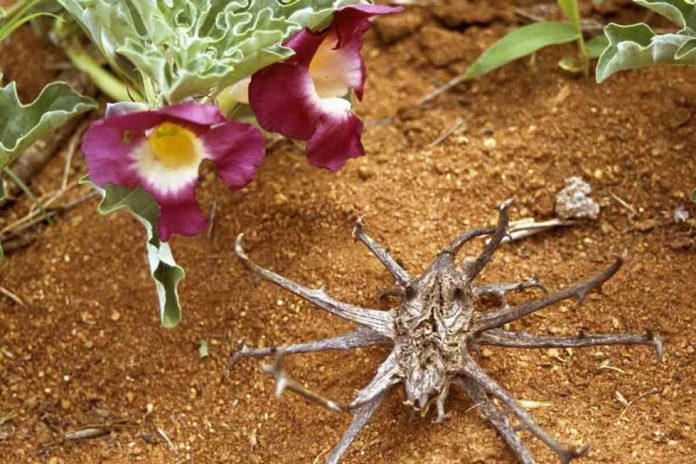The American Botanical Council (ABC) has released information stating that the New York Attorney General’s (NY AG’s) investigation on the herb “devil’s claw” has reached an incorrect conclusion. The ABC notes that this accusation is based on the NY AG’s too-narrow interpretation of botanical classifications.
Last week, the NY AG sent cease-and-desist letters to 13 companies that sell herbal supplements made from devil’s claw. In these letters, the organization noted that their products had been tested at the New York Botanical Garden with DNA technology, and that the results of said testing had revealed that the devil’s claw was actually of a different, “less desirable” botanical species than was labeled.
In botanical classification and nomenclature, devil’s claw is usually known scientifically by its Latin name, Harpagophytum procumbens. The DNA tests ordered by the NY AG, however, showed that some herbal supplements actually contain Harpagophytum zeyheri, a slightly different—but very closely related—form of devil’s claw.
“Both species of devil’s claw have a similar chemical profile,” says Thomas Brendler, a medicinal plant expert. “While both species differ marginally in shape and chemical composition, both are considered equally effective.”
Mark Blumenthal, founder and executive director of the ABC, notes that the organization “sincerely [appreciates]” the NY AG’s desire to “help consumers maintain access to high-quality, safe, and effective herbal products.”
“We here at ABC have a similar mission,” he adds. “However, splitting the devil’s claw genus in the very narrow way that they have done in this investigation is akin to splitting hairs — it has no real meaning or value to anyone, particularly the herb consumer.”









